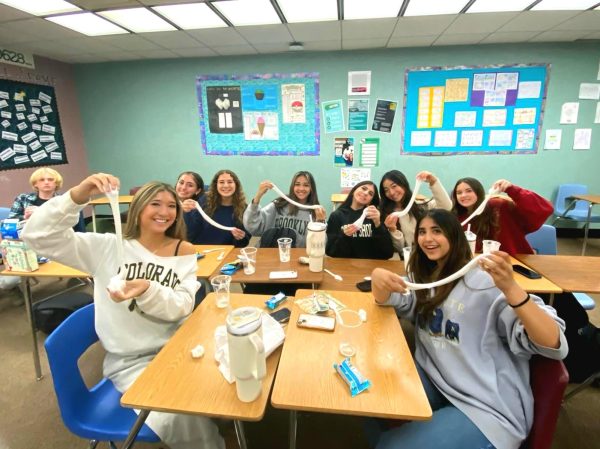Misogyny Throughout History
April 29, 2021559 Views
Misogyny has been around since the development of the human race. The most common misogynistic phrase is likely “women belong in the kitchen” or when a man tells a woman, “be quiet and make me a sandwich.”
The notion that women are inferior and are only capable of domestic tasks was present since the days of the pilgrims. It was the woman’s role to take care of the children, manage the household, and prepare all the meals, while the man of the house was the sole provider and breadwinner.
The Salem Witch Trials, for example, ended in the execution of nearly 20 women just based on suspicions. Neighbors and other members of the communities in colonial Massachusetts accused women of being witches because they were not “normal.” Most of the women accused were widows or they ran their own household.
Even from the beginning, women who broke the female social confinements were seen as peculiar and were not accepted by society.
Women’s suffrage was a huge revelation that expanded the legal rights of women beyond the domestic sphere. However, this expansion of rights was not ratified until 1920, over 130 years after the Constitution was written.
This triumph did not come without a fight. Women could not vote, so they were forced to convince an all male demographic to support their rights. Those who opposed women’s right to vote produced and published propaganda to scare men into voting against the interests of women. Scare tactics were used, instilling fear among men that women would steal their jobs, affluence, and power if the bill were to be passed.
Historically, women just have not been treated equally in comparison to their male counterparts all because of one chromosome. Recently, the treatment of female athletes attending the NCAA has gained traction due to the painfully obvious inequality between the female and male athletes.
The women received less food, less accurate COVID testing, lower quality facilities, and– the most publicized factor– less equipment. The male players were given a full gym’s worth of workout equipment including weights, benches, bars, dumbbells, and any machine you can imagine. Contrastingly, the women were given yoga mats and one set of dumb bells.
Sedona Prince, a TikTok famous player for the Oregon Ducks, used her platform to expose the unfair treatment between the two genders at the tournament. She did not hold back on calling the NCAA on their lies and attempts to fool the public.
Inequality between women’s and men’s sports is nothing new; and although, as a society, we have gotten better on correcting misogynistic practices, many unconscious ones are still used on a regular basis.
For example, the compliment “you’re not like other girls.” This “compliment” is usually given to girls who choose to wear pants over skirts or who are tough and adventurous or who are beautiful in a “natural” way or who enjoy stereotypically masculine things.
The comment completely dismisses an entire gender and indirectly upholds the “ideal” feminine role taken on by the cliché girly girl. One can go on and on about the endless examples and issues of misogyny, but there will never be a solution without the compliance of both men and women.








